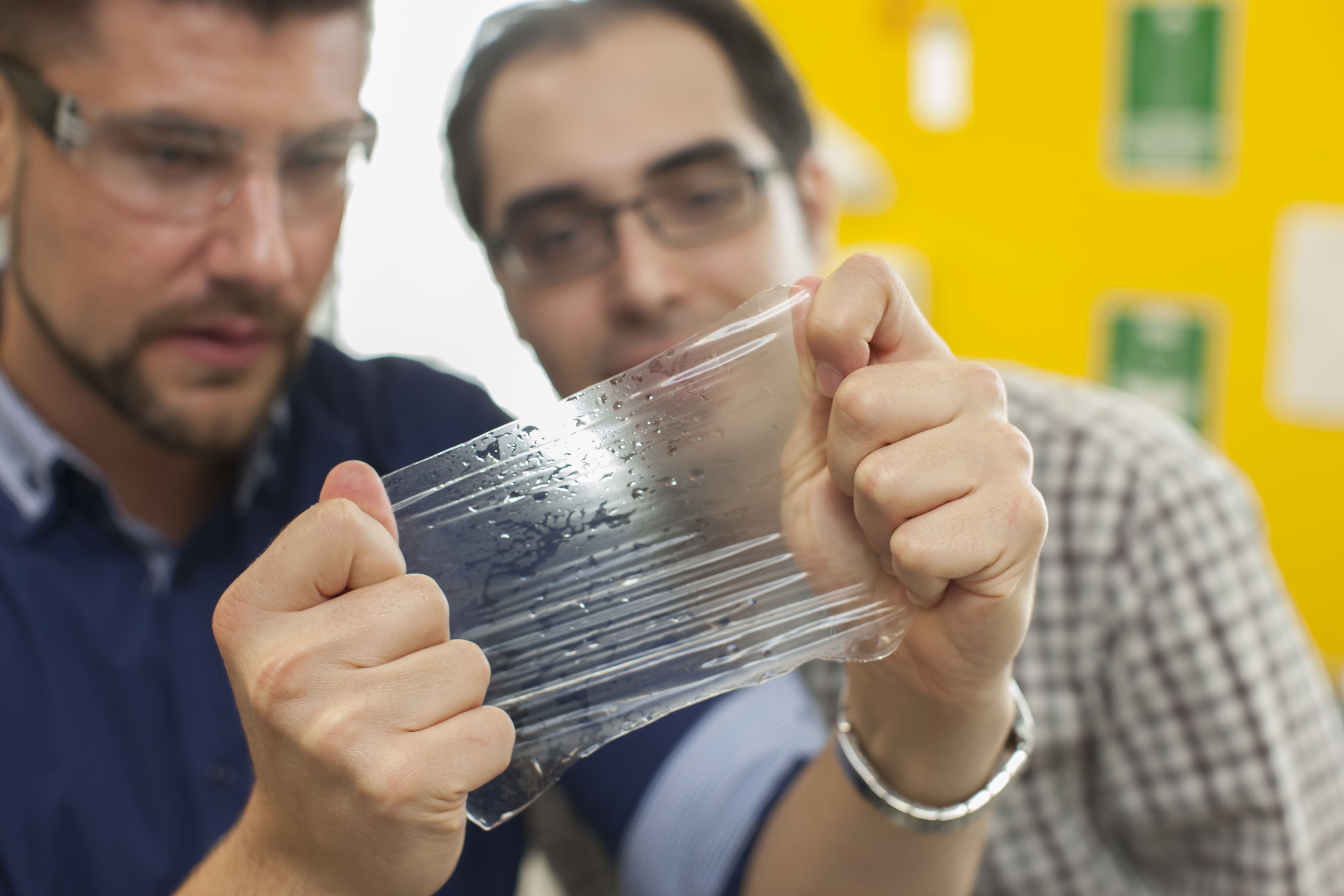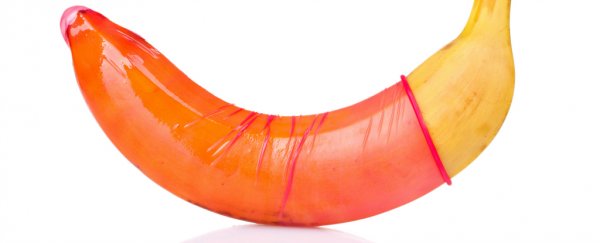It's no secret that a lot of people don't enjoy using condoms. Sure, we appreciate their disease- and pregnancy-preventing benefits, but let's be upfront about the fact that no one really likes to wear them.
But there's hope, because scientists at the University of Wollongong in Australia are working with an ultra-tough material called hydrogel that could be used to create condoms that can feel even better than nothing at all.
Hydrogels are strong and flexible solids that have been used for decades, but have more recently been engineered to have a range of different properties. One of the most promising is the fact they can be made to feel and act like human tissue, and are already being widely used in prosthetics to create things such as blood vessels and even eye implants.
But the Australian team, led by materials scientist Robert Gorkin, decided to take things one step further, and investigate whether hydrogel could replace latex to create condoms that people actually want to use (no offence, latex).
 University of Wollongong
University of Wollongong
They entered the idea in a recent Bill and Melinda Gates Foundation call-out for a Next Generation Condom, and won one of 52 grants on offer, giving them access to US$100,000 to research the viability of their hydrogel condoms. Nine months on, and things are looking extremely promising, with the material not only able to physically act like a condom, but also able to block biological material.
"Our original idea was just to try to prove that an original material could replace latex," Gorkin told ScienceAlert. "We were starting from scratch, we had an idea that these new materials would have the same properties as rubber with a nicer feel, but we weren't sure if they had the right properties for a condom."
"The early indications are that the materials are strong enough and actually do prevent against the transfer of small biological molecules," he said. You can see some of their durability tests in action below:

Even more impressive is the fact that hydrogels can be engineered to perform all kinds of different functionalities, such as self-lubrication, topical drug delivery, biodegradability and even electric conductivity. For example, imagine a condom that delivers its own dose of Viagra, or responds to stimulation just like human skin. Depending on how you fabricate the material, you can potentially open up a whole new world of pleasure.
The team is not just relying on their own opinions on what feels good, however, they're now partnering with Swinburne University of Technology in Melbourne, Australia, to conduct biometric testing that will be able to measure the body's response to the material.
"We'll be able to look at brain activity to see whether it really feels better than latex," explained Gorkin. "If you make them so pleasurable that people can't wait to put them on, then more people will use them, and we can hopefully stop the spread of disease. It's as simple as that."
 University of Wollongong
University of Wollongong
The next step is to prove that hydrogel is a potential material for the Gates Foundation Next Generation of condoms, and receive the next round of funding to start making and testing them more broadly. Of course, the aim is to one day be able to create something that does what no condom has been able to do yet - improve uptake and regular use.
Although a lot of the focus is on regions such as sub-Saharan African and southeast Asia, the outcome would be just as important in countries such as the US, which, despite having plenty of access to birth control, has the highest rates of accidental pregnancies and HIV transmission in the developed world.
Gorkin also wants to look beyond the science and make sure that cultural and social needs for birth control influence how they design their condom. "It's a branding exercise as much as a scientific one," said Gorkin. "A material alone can't change the way we look at sex, but we believe it can definitely help."
We're already sold - bring on the future of birth control.
Love science? Find out more about studying at the University of Wollongong.
